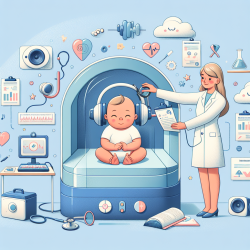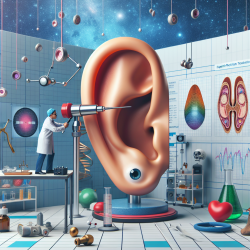As practitioners in the field of speech-language pathology, it is crucial to stay informed about the latest research and its practical applications. A recent study titled "Changes in severity and impact of drooling after submandibular gland botulinum neurotoxin A injections in children with neurodevelopmental disabilities" provides valuable insights that can enhance our therapeutic approaches.
This longitudinal, observational cohort study involved 160 children aged 3 to 17 years, treated at the Radboud University Medical Center in Nijmegen, the Netherlands. The primary aim was to examine changes in drooling severity and its impact on daily life after botulinum neurotoxin A (BoNT-A) injections into the submandibular glands.
Key Findings
- 70% of children showed a significant reduction in drooling severity post-intervention.
- Both objective (5-minute Drooling Quotient - DQ5) and subjective (Visual Analogue Scale - VAS) measures showed significant improvements at 8 and 32 weeks post-treatment.
- Positive changes were observed in daily care and social interactions, particularly in children who responded well to the treatment.
Practical Applications for Practitioners
The findings from this study highlight several key areas where practitioners can improve their therapeutic interventions:
1. Utilize Both Objective and Subjective Measures
Combining objective measures like the DQ5 with subjective assessments such as the VAS can provide a comprehensive understanding of treatment efficacy. This dual approach ensures that both quantifiable data and personal experiences are considered, leading to more tailored and effective treatment plans.
2. Monitor Long-Term Outcomes
The study demonstrated that the positive effects of BoNT-A injections were sustained over 32 weeks. Regular follow-ups and long-term monitoring can help in assessing the enduring benefits of the treatment and making necessary adjustments to the therapy plan.
3. Focus on Holistic Improvements
Beyond reducing drooling severity, it's essential to consider the broader impact on a child's daily life and social interactions. As the study showed, improvements in drooling severity were accompanied by enhanced social interactions and easier daily care. Therefore, therapy goals should encompass both physical and social aspects.
Encouraging Further Research
While the study provides promising results, further research is essential to explore additional variables and refine treatment protocols. Practitioners are encouraged to contribute to ongoing research efforts by documenting their clinical observations and outcomes. Collaboration with research institutions can also provide valuable data that enhance our collective understanding and treatment of drooling in children with neurodevelopmental disabilities.
In conclusion, the integration of evidence-based practices, such as those highlighted in this study, can significantly improve the quality of life for children with neurodevelopmental disabilities. By staying informed and applying these findings, practitioners can make data-driven decisions that lead to better therapeutic outcomes.
To read the original research paper, please follow this link: Changes in severity and impact of drooling after submandibular gland botulinum neurotoxin A injections in children with neurodevelopmental disabilities.










